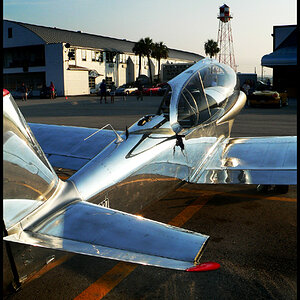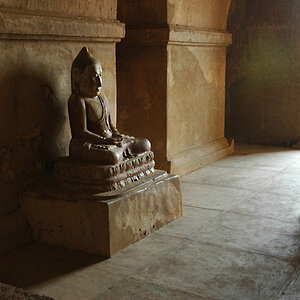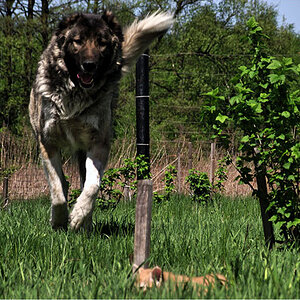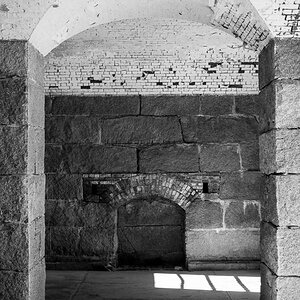TCampbell
Been spending a lot of time on here!
- Joined
- Mar 31, 2012
- Messages
- 3,614
- Reaction score
- 1,556
- Location
- Dearborn, MI
- Can others edit my Photos
- Photos OK to edit
I suppose I'm probably Mr. Campbell (Tim). I did some digging a while ago and found several reference sites created by photographers who did some considerable research. I then spoke to several personal friends who happen to be attorneys... although none of them are attorneys with a speciality in this area.
What you are, in effect, saying when you mention that in NY it was established that "commercial" use was defined as "advertising purposes" is that a jury in New York decide based on that fact.
But one thing my attorney friends are fond of reminding me is that: You can get away with anything as long as you are SURE that you can get 12 people to go along with you (referring to the assumption that a jury is 12 people... by the way in my local court a jury is only 6 people and a 7th "alternate"... it turns out the number of people on a jury isn't even a constant from place to place.).
If money changes hands (or even if there's an offer for money to change hands) someone can argue that you are engaging in "commerce". The fact that it changed hands for purposes of "advertising" could be interpreted differently in a different court.
I suppose my point in all of this is: if you are seriously concerned about your legal rights, or, if you've been challenged about one of your images, then you really should consult an expert who specializes in this area in YOUR locality. All you'll get from the internet is generalizations based on "patterns" that most localities tend to pattern their laws after other localities. That will be of little consequence if you're accused of violating some law or someone else's rights only to find out that there's some variation in the law in the location where you took the shot.
Lastly... a good attorney isn't someone who goes to court for you and wins. Rather... a good attorney is someone who gives you sound advice that keeps you from ending up in court in the first place. It costs money to go to court. You might find an attorney to represent you for a percentage of the winnings when you are the one suing someone else. When you are hiring an attorney to defend you from a civil suite, there are generally no attorneys who take those cases on "contingency" (because "winning" really just means you don't have to pay out.) That means that even if you are right, it may cost you substantially to prove that you are right.
What you are, in effect, saying when you mention that in NY it was established that "commercial" use was defined as "advertising purposes" is that a jury in New York decide based on that fact.
But one thing my attorney friends are fond of reminding me is that: You can get away with anything as long as you are SURE that you can get 12 people to go along with you (referring to the assumption that a jury is 12 people... by the way in my local court a jury is only 6 people and a 7th "alternate"... it turns out the number of people on a jury isn't even a constant from place to place.).
If money changes hands (or even if there's an offer for money to change hands) someone can argue that you are engaging in "commerce". The fact that it changed hands for purposes of "advertising" could be interpreted differently in a different court.
I suppose my point in all of this is: if you are seriously concerned about your legal rights, or, if you've been challenged about one of your images, then you really should consult an expert who specializes in this area in YOUR locality. All you'll get from the internet is generalizations based on "patterns" that most localities tend to pattern their laws after other localities. That will be of little consequence if you're accused of violating some law or someone else's rights only to find out that there's some variation in the law in the location where you took the shot.
Lastly... a good attorney isn't someone who goes to court for you and wins. Rather... a good attorney is someone who gives you sound advice that keeps you from ending up in court in the first place. It costs money to go to court. You might find an attorney to represent you for a percentage of the winnings when you are the one suing someone else. When you are hiring an attorney to defend you from a civil suite, there are generally no attorneys who take those cases on "contingency" (because "winning" really just means you don't have to pay out.) That means that even if you are right, it may cost you substantially to prove that you are right.





![[No title]](/data/xfmg/thumbnail/36/36669-32e6602a9741e9fefddbc9dc04bc8e8f.jpg?1619737676)
![[No title]](/data/xfmg/thumbnail/34/34065-43f99c081a04bd087c00711d2fe010ee.jpg?1619736261)

![[No title]](/data/xfmg/thumbnail/36/36667-b3265abf8272f21d759a0abd6a0995c3.jpg?1619737676)

![[No title]](/data/xfmg/thumbnail/34/34063-09779b4ba56a0acb2b0fa36cf8720dfb.jpg?1619736260)


